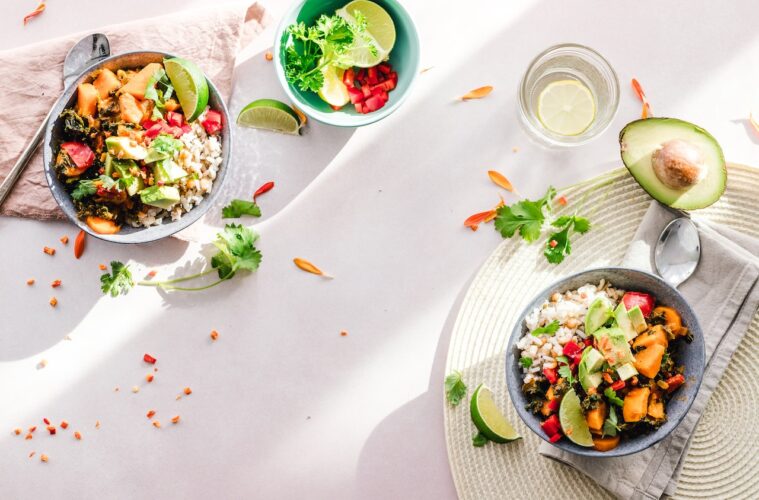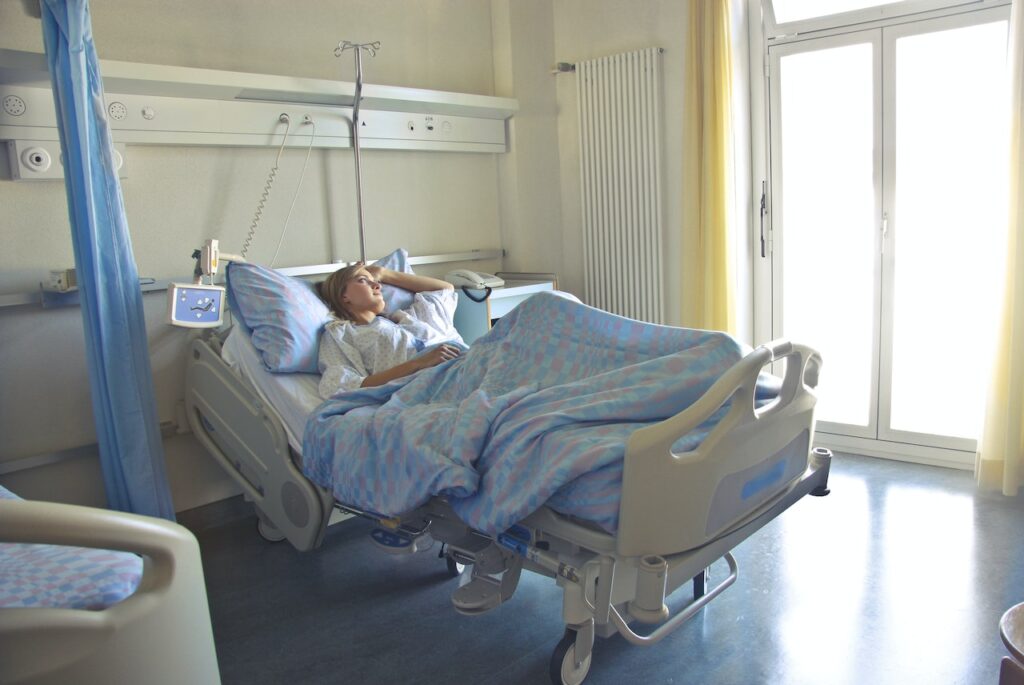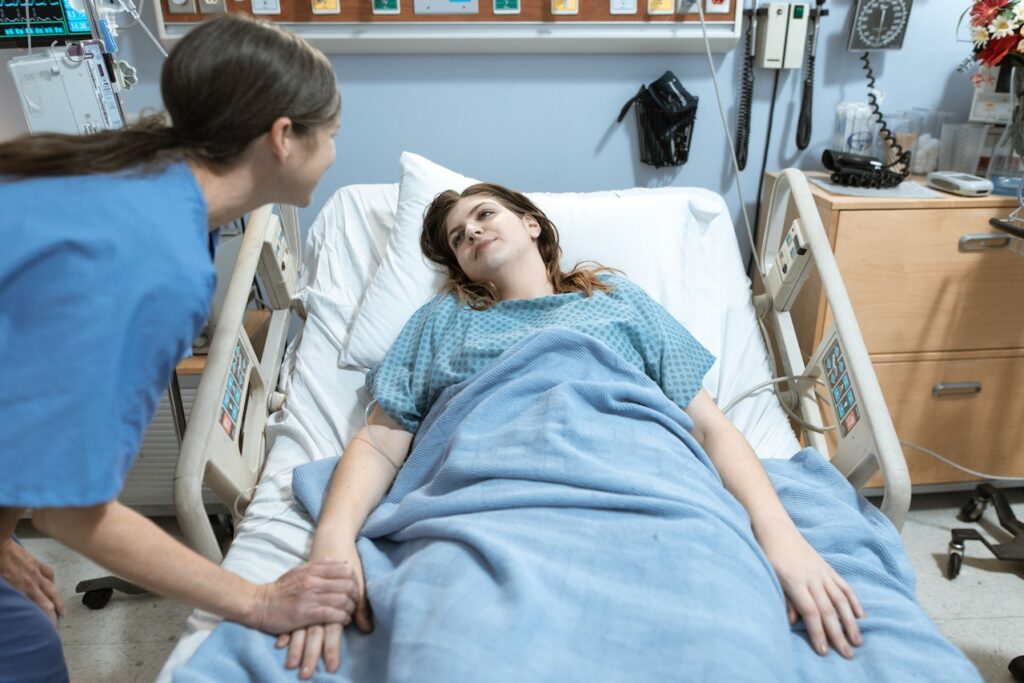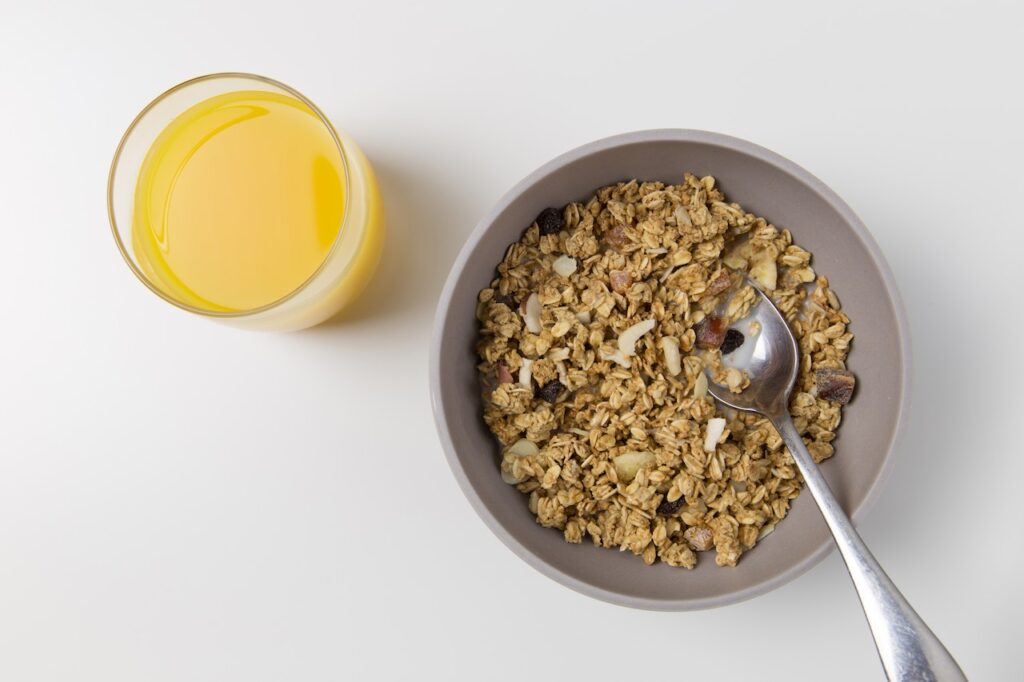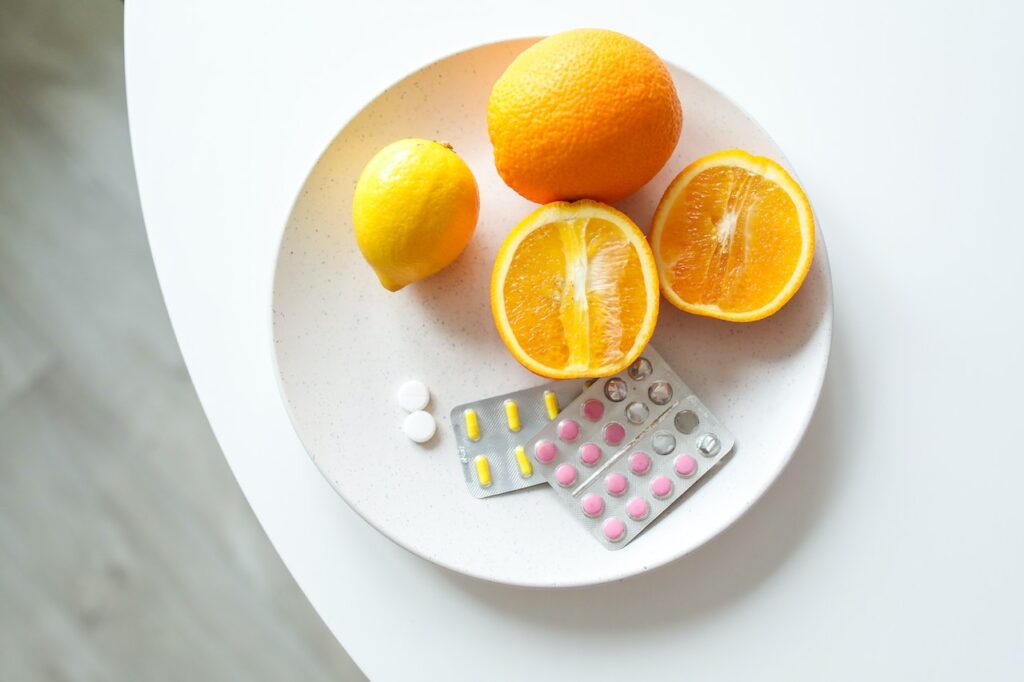After undergoing an appendix surgery, it is crucial to follow a proper diet plan to promote healing and recovery. While some foods may be beneficial for a speedy recovery, others can cause discomfort or even lead to complications. Therefore, it is essential to know which foods to avoid after appendix surgery.
Understanding the dietary changes after appendix surgery is crucial to ensure a smooth recovery. The digestive system may take some time to return to its normal function after surgery, and certain foods may be difficult to digest. Moreover, some foods can cause inflammation or irritation in the digestive tract, leading to discomfort and pain. Therefore, it is essential to follow a diet that is easy to digest and promotes healing.
Key Takeaways
- Following a proper diet plan is crucial for a speedy recovery after appendix surgery.
- Certain foods can cause discomfort or lead to complications, and it is essential to know which foods to avoid.
- A diet that is easy to digest and promotes healing can help the digestive system return to its normal function.
Understanding Appendix Surgery
Appendix surgery or appendectomy is a surgical procedure to remove the appendix, a small, finger-like organ attached to the large intestine. The appendix is a vestigial organ, meaning it has no known function in the human body. However, when it becomes inflamed or infected, it can cause severe abdominal pain, nausea, vomiting, and fever, among other symptoms. In such cases, the appendix must be removed to prevent further complications.
Appendix surgery is usually performed as an emergency procedure when the appendix is inflamed or infected, a condition known as appendicitis. However, it can also be performed as a preventive measure in people who have a history of recurrent appendicitis or other abdominal conditions.
The surgery is typically performed under general anesthesia and involves making a small incision in the abdomen to access the appendix. The appendix is then removed, and the incision is closed with stitches or staples. In some cases, a laparoscopic procedure may be used, which involves making several small incisions in the abdomen and using a camera and specialized tools to remove the appendix.
After the surgery, patients may experience some pain and discomfort, which can be managed with pain medication. They may also need to stay in the hospital for a few days to monitor their condition and ensure that there are no complications.
Overall, appendix surgery is a common abdominal procedure that is generally safe and effective in treating appendicitis and other related conditions. However, as with any surgery, there are risks involved, and patients should discuss the potential benefits and risks with their doctor before undergoing the procedure.
Post-Appendix Surgery Recovery
Recovering from an appendix surgery can be a challenging process that requires careful attention to diet and lifestyle. Proper post-operative care can help prevent complications and speed up the healing process.
Infection is a common concern after an appendix surgery. Patients should monitor their temperature and watch for signs of fever, which may indicate an infection. Nausea, vomiting, and pain medication can also affect recovery and should be managed carefully.
It is important to avoid certain foods in the days and weeks following an appendix surgery. Spicy, greasy, and fatty foods can cause discomfort and interfere with healing. Instead, patients should focus on a balanced diet that includes plenty of fruits, vegetables, and lean protein.
Recovery time can vary depending on the individual and the extent of the surgery. Patients may experience pain, swelling, and drainage at the incision site, which is normal. It is important to follow the doctor’s instructions for wound care and to avoid strenuous activity until fully healed.
Complications such as bleeding or infection can occur during the recovery process. Patients should watch for signs of these complications and seek medical attention if necessary.
Overall, a careful and attentive recovery process can help patients heal quickly and avoid complications. With proper care and attention, patients can return to their normal activities in a timely manner.
Dietary Changes After Appendix Surgery
After an appendix surgery, it is important to make dietary changes to aid in the healing process and avoid any complications. The type of diet recommended will depend on the individual’s recovery progress and the specific instructions provided by their doctor.
Initially, patients may be advised to follow a liquid diet for the first few days after surgery. This may include clear broths, water, and other clear liquids. As the patient’s condition improves, they may gradually transition to a full liquid diet, which may include foods such as smoothies, soups, and yogurts.
Once the patient is able to tolerate solid foods, they can begin incorporating healthy options into their diet. A healthy diet is important for proper nutrition and to aid in the healing process. Foods rich in protein, such as lean meats, fish, and legumes, are recommended. Additionally, fruits and vegetables should be incorporated into the diet to provide essential vitamins and minerals.
It is important to avoid certain foods after an appendix surgery to prevent any complications. Foods that are high in fat, sugar, and salt should be avoided. This includes processed foods, fried foods, and sugary drinks. Additionally, foods that are difficult to digest, such as nuts and seeds, should be avoided until the patient’s condition improves.
Overall, it is important to follow the specific dietary instructions provided by the doctor to ensure a smooth recovery after an appendix surgery.
Foods to Avoid After Appendix Surgery
After an appendix surgery, it is important to follow a proper diet to ensure a smooth and speedy recovery. Certain foods can cause discomfort and may even lead to complications. Here are some foods to avoid after appendix surgery:
High-Fat Foods
High-fat foods can be difficult to digest, especially after surgery. They can also cause inflammation in the body, which can delay the healing process. Avoid foods like fried foods, fatty meats, and processed foods. Instead, opt for lean proteins like chicken, fish, and tofu.
Dairy Products
Dairy products can be hard to digest and can cause discomfort after surgery. Avoid foods like cheese, milk, and ice cream. Instead, try lactose-free alternatives like almond milk or soy milk.
Nuts
Nuts are high in fat and can be difficult to digest after surgery. They can also cause inflammation in the body. Avoid nuts and nut butters for the first few weeks after surgery.
Alcohol
Alcohol can slow down the healing process and can also interact with pain medication. Avoid alcohol for at least a week after surgery.
It is important to listen to your body after surgery and avoid any foods that cause discomfort or pain. Stick to a diet of lean proteins, fruits, vegetables, and whole grains to ensure a speedy recovery.
The Role of Hydration
After appendix surgery, it is crucial to stay hydrated to prevent complications and promote healing. Adequate hydration helps to flush out toxins from the body and keeps the digestive system functioning properly.
Drinking plenty of water and other fluids like coconut water, fruit juices, and herbal teas can help to prevent constipation, which is a common side effect of pain medication and reduced physical activity after surgery.
It is recommended to drink at least 8-10 glasses of water per day to maintain hydration levels. However, it is important to avoid drinking fluids that are high in sugar or caffeine, as they can cause dehydration and interfere with the healing process.
In addition to drinking fluids, incorporating foods with high water content, such as cucumbers, watermelon, and celery, can help to keep the body hydrated.
Overall, staying hydrated is an essential part of the recovery process after appendix surgery. By drinking plenty of fluids and consuming water-rich foods, patients can help to prevent complications and promote healing.
Importance of Protein
Protein is an essential nutrient that plays a vital role in the body’s healing process after appendix surgery. It is responsible for repairing and building tissues, including muscles, skin, and organs. Protein also helps to strengthen the immune system, which is crucial for fighting off infections.
Fish is an excellent source of protein, and it is recommended to include it in the diet after appendix surgery. Some types of fish, such as salmon and tuna, are also rich in omega-3 fatty acids, which have anti-inflammatory properties that can help reduce swelling and pain.
Cheese and cottage cheese are also good sources of protein, but they should be consumed in moderation as they are high in fat. Seafood, such as shrimp and crab, is another excellent source of protein and can be included in the diet after appendix surgery.
It is important to consume enough protein after surgery to promote healing and prevent muscle loss. A diet rich in proteins can also help to reduce the risk of complications and speed up the recovery process.
In conclusion, protein is a crucial nutrient for the body’s healing process after appendix surgery. Including fish, cheese, cottage cheese, seafood, and other protein-rich foods in the diet can help promote healing and prevent complications.
The Role of Fruits and Vegetables
Fruits and vegetables are an essential part of a healthy diet and can play a significant role in recovery after appendix surgery. They provide essential vitamins, minerals, and fiber that are necessary for the body to heal and function properly.
Citrus fruits like oranges, lemons, and grapefruits are rich in vitamin C, which is essential for wound healing and boosting the immune system. However, it is essential to limit the intake of citrus fruits immediately after surgery as they can cause discomfort and irritation in the digestive system.
Leafy greens like spinach are rich in iron, which is necessary for the production of red blood cells. They also contain vitamin K, which helps with blood clotting. However, it is essential to cook the greens thoroughly to avoid any discomfort in the digestive system.
Avocados are an excellent source of healthy fats, fiber, and vitamins that can help with digestion and nutrient absorption. They are also low in fiber, which can help prevent constipation, a common side effect of pain medication after surgery.
In summary, fruits and vegetables are an important part of a healthy diet, especially after appendix surgery. However, it is essential to be mindful of the types and amounts of fruits and vegetables consumed to avoid any discomfort or complications in the digestive system.
The Significance of Fiber
Fiber is an important nutrient that plays a crucial role in maintaining gut health. It is particularly relevant for individuals who have undergone appendix surgery, as it can help promote healing and prevent complications.
Whole grains, rice, seeds, beans, and other high-fiber foods are excellent sources of this nutrient. Eating a diet rich in fiber can help regulate bowel movements, reduce inflammation, and promote the growth of beneficial gut bacteria.
One of the key benefits of fiber is its ability to prevent constipation. After appendix surgery, constipation can be a common issue due to the changes in the digestive system. Eating a high-fiber diet can help alleviate this problem by promoting regular bowel movements.
In addition to preventing constipation, fiber can also help reduce inflammation in the gut. This is especially important after appendix surgery, as inflammation can slow down the healing process and increase the risk of complications.
Overall, incorporating fiber-rich foods into the diet is essential for individuals who have undergone appendix surgery. By doing so, they can promote healing, prevent complications, and maintain optimal gut health.
Vitamins and Minerals for Healing
After an appendix surgery, the body needs to recover and heal. One way to help the body heal is to consume foods that contain vitamins and minerals that are essential for the healing process. Here are some important vitamins and minerals to include in your diet after appendix surgery:
Zinc
Zinc is an important mineral that helps the body heal wounds and boosts the immune system. Foods that are rich in zinc include oysters, beef, pork, chicken, beans, and nuts.
Vitamin C
Vitamin C is a powerful antioxidant that helps the body heal wounds and fight infections. Foods that are rich in vitamin C include citrus fruits, strawberries, kiwi, tomatoes, and broccoli.
Vitamin E
Vitamin E is another antioxidant that helps the body heal wounds and reduce inflammation. Foods that are rich in vitamin E include almonds, sunflower seeds, spinach, and avocado.
Iron
Iron is essential for the production of red blood cells, which carry oxygen throughout the body. Foods that are rich in iron include red meat, poultry, fish, beans, and leafy green vegetables.
Calcium
Calcium is important for bone health and muscle function. Foods that are rich in calcium include dairy products, leafy green vegetables, and fortified cereals.
Vitamin A
Vitamin A is important for the immune system and helps the body heal wounds. Foods that are rich in vitamin A include carrots, sweet potatoes, spinach, and cantaloupe.
Consuming a variety of nutrient-rich foods that contain these vitamins and minerals can help the body heal and recover after appendix surgery. It is important to consult with a healthcare professional before making any significant changes to your diet.
Understanding Digestion After Appendix Surgery
After an appendix surgery, the digestive system may take some time to recover. The appendix plays a role in the digestive process, and its removal can affect the way the body digests food. Understanding the changes in digestion after an appendix surgery can help patients make better food choices and avoid discomfort.
One common issue that patients may experience after an appendix surgery is diarrhea. Diarrhea can occur due to changes in the gut microbiome, which is the collection of microorganisms that live in the digestive system. Antibiotics used during surgery can also disrupt the balance of bacteria in the gut, leading to diarrhea. It is important to avoid foods that can further irritate the digestive system, such as spicy or greasy foods.
On the other hand, constipation can also be a problem after an appendix surgery. This can be due to the use of pain medications, which can slow down the digestive system. Eating foods high in fiber, such as fruits, vegetables, and whole grains, can help prevent constipation.
It is also important to understand how the digestive system works after an appendix surgery. The gastrointestinal system is responsible for breaking down food and absorbing nutrients. Without the appendix, the digestive system may take longer to break down certain foods, leading to discomfort and bloating. Eating smaller, more frequent meals can help ease the burden on the digestive system.
In summary, after an appendix surgery, patients should be mindful of their diet and make choices that support the digestive system. Avoiding foods that can irritate the gut, eating high-fiber foods, and eating smaller, more frequent meals can all help promote healthy digestion.
The Role of Healthy Fats
After an appendix surgery, it is important to follow a specific diet to allow your body to heal properly. While it may be tempting to avoid all fats, healthy fats can actually play a beneficial role in your recovery.
One type of healthy fat is olive oil. Olive oil is rich in monounsaturated fats, which have been shown to reduce inflammation in the body. Inflammation can be a common side effect of surgery, so including olive oil in your diet may help to reduce these symptoms.
In addition, healthy fats can also aid in the absorption of important nutrients. Vitamins A, D, E, and K are all fat-soluble, which means they need to be consumed with fat in order for the body to absorb them. Including healthy fats in your diet can ensure that your body is able to properly absorb these important nutrients.
It is important to note that not all fats are created equal. Unhealthy fats, such as trans fats and saturated fats, should still be avoided. These types of fats have been linked to an increased risk of heart disease and other health problems.
Overall, incorporating healthy fats into your diet after an appendix surgery can be beneficial for your recovery. Olive oil is a great source of healthy fats to include in your meals. As always, it is important to consult with your doctor or a registered dietitian to determine the best diet for your individual needs.
The Importance of Moderation
After appendix surgery, it is important to be mindful of the foods that you eat. While some foods can help with recovery, others can cause discomfort or even harm. However, it is also important to remember that complete avoidance of certain foods is not necessary. Moderation is key.
Moderation means consuming foods in appropriate quantities and at appropriate times. It is important to listen to your body and avoid overeating or consuming too much of any one type of food. This is particularly important after surgery, as your body needs time to heal and adjust.
When it comes to specific foods, moderation is important for a variety of reasons. For example, fatty or fried foods can be difficult to digest and may cause discomfort or pain if consumed in large quantities. However, small amounts of these foods can be enjoyed in moderation without causing harm.
Similarly, high-fiber foods should be consumed in moderation after appendix surgery. While fiber is important for digestive health, consuming too much fiber too quickly can cause gas, bloating, and discomfort. It is best to gradually increase fiber intake over time, and to consume fiber-rich foods in moderation.
Overall, moderation is an important part of a healthy diet after appendix surgery. By being mindful of the foods that you eat and consuming them in appropriate quantities, you can help support your body’s recovery and avoid discomfort or complications.
Promoting Healing and Recovery
After undergoing an appendectomy, it is important to promote healing and recovery. This can be achieved through a combination of proper nutrition, rest, and following the advice of medical professionals.
One of the most important things to focus on is reducing inflammation in the body. Inflammation can slow down the healing process and lead to complications. Eating foods that are high in antioxidants can help reduce inflammation and promote healing. Some examples of antioxidant-rich foods include berries, leafy greens, and nuts.
Another important factor in promoting healing is supporting the immune system. The immune system is responsible for fighting off infections and preventing complications. Eating foods that are high in vitamins and minerals can help boost the immune system. Some examples of immune-boosting foods include citrus fruits, garlic, and yogurt.
Connective tissue is also important in the healing process. Eating foods that are high in collagen can help support connective tissue and promote wound healing. Some examples of collagen-rich foods include bone broth, fish, and eggs.
It is also important to avoid foods that can cause inflammation or hinder the healing process. Some foods to avoid after appendix surgery include:
- Spicy foods
- Fatty foods
- Processed foods
- Sugary foods
In addition to diet, it is important to get plenty of rest and follow the advice of medical professionals. By taking care of the body and following a proper diet, healing and recovery can be promoted after appendix surgery.
Soft and Easy-to-Digest Foods
After having an appendix surgery, it is important to consume soft and easy-to-digest foods that will not irritate the digestive system. These foods will help the body to recover and heal faster. Here are some examples of soft and easy-to-digest foods that can be included in the post-surgery diet:
- Soups and Broth: Soups and broth are great options as they are easy to digest and provide essential nutrients. Chicken noodle soup, vegetable soup, and bone broth are some good options to consider.
- Soft Foods: Soft foods like scrambled eggs, boiled eggs, and tofu are easy to digest and can be consumed without any discomfort.
- Mashed Potatoes: Mashed potatoes are a good source of carbohydrates and can be easily digested. They can be seasoned with salt and pepper to add flavor.
- Ice Cream: Ice cream is a soft and creamy dessert that can be consumed after an appendix surgery. It is important to choose ice cream that is low in fat and sugar to avoid any discomfort.
It is important to note that while these foods are soft and easy-to-digest, they should still be nutritious. It is recommended to avoid processed and junk foods as they can slow down the healing process. It is also important to consume plenty of water and stay hydrated.
In conclusion, soft and easy-to-digest foods like soups, broth, soft foods, mashed potatoes, and ice cream can be included in the post-appendix surgery diet. These foods are easy on the digestive system and can help the body to recover faster.
Consulting Your Surgeon
After an appendix surgery, it is essential to consult your surgeon regarding your diet plan. Your surgeon can provide you with personalized recommendations based on your specific health needs.
The surgeon will likely advise you to avoid certain foods that may cause discomfort or interfere with your recovery. They may also suggest a gradual reintroduction of foods to your diet.
It is crucial to discuss any concerns or questions you may have with your surgeon. They can provide you with valuable information on how to maintain a healthy diet while recovering from surgery.
Furthermore, your surgeon may recommend consulting with a registered dietitian to help you develop a healthy meal plan that meets your nutritional needs.
In summary, consulting your surgeon is an essential step in determining your diet plan after appendix surgery. They can provide you with personalized recommendations and answer any questions or concerns you may have.
The Role of Medication
After an appendix surgery, medication plays a crucial role in the healing process. Antibiotics are commonly prescribed to prevent infection and inflammation. These medications work by killing or inhibiting the growth of bacteria in the body.
It is important to take the antibiotics exactly as prescribed by the doctor. Missing a dose or stopping the medication early can lead to the development of antibiotic-resistant bacteria, which can be difficult to treat.
In addition to antibiotics, pain medication may also be prescribed to manage post-operative pain. Nonsteroidal anti-inflammatory drugs (NSAIDs) such as ibuprofen and aspirin should be avoided as they can increase the risk of bleeding.
If a patient experiences any side effects from the medication, such as an allergic reaction or severe stomach pain, they should contact their doctor immediately.
Overall, medication plays an important role in the recovery process after an appendix surgery. It is important to follow the doctor’s instructions and take medication as prescribed to ensure a smooth and successful recovery.
Frequently Asked Questions
What foods should be avoided after appendix surgery?
After an appendectomy, it is recommended to avoid foods that are difficult to digest and may cause discomfort. These include spicy, greasy, and fatty foods. It is also best to avoid foods that are high in fiber, such as nuts, seeds, and raw fruits and vegetables, as they may cause bowel irritation.
Is it safe to eat bananas after appendix surgery?
Yes, bananas are a safe food to consume after appendix surgery. They are easy to digest and provide important nutrients such as potassium.
Can bread be consumed after appendix surgery?
Soft, low-fiber bread such as white bread or sourdough bread can be consumed after appendix surgery. However, it is best to avoid whole grain bread or bread with nuts and seeds as they may cause bowel irritation.
What are the dietary do’s and don’ts after appendix surgery?
Do consume plenty of fluids to prevent dehydration and aid in digestion. Eat small, frequent meals to avoid overloading the digestive system. Don’t consume foods that are difficult to digest, such as spicy, greasy, and fatty foods. Avoid high-fiber foods such as nuts, seeds, and raw fruits and vegetables.
Should chocolate be avoided after appendix surgery?
It is best to avoid chocolate after appendix surgery as it may cause bowel irritation. However, small amounts of milk chocolate may be consumed in moderation.
What is the recommended diet after an appendectomy?
The recommended diet after an appendectomy is a soft, low-fiber diet that is easy to digest. This includes foods such as cooked vegetables, soft fruits, lean proteins, and low-fiber bread. It is important to avoid foods that are difficult to digest and may cause discomfort.

